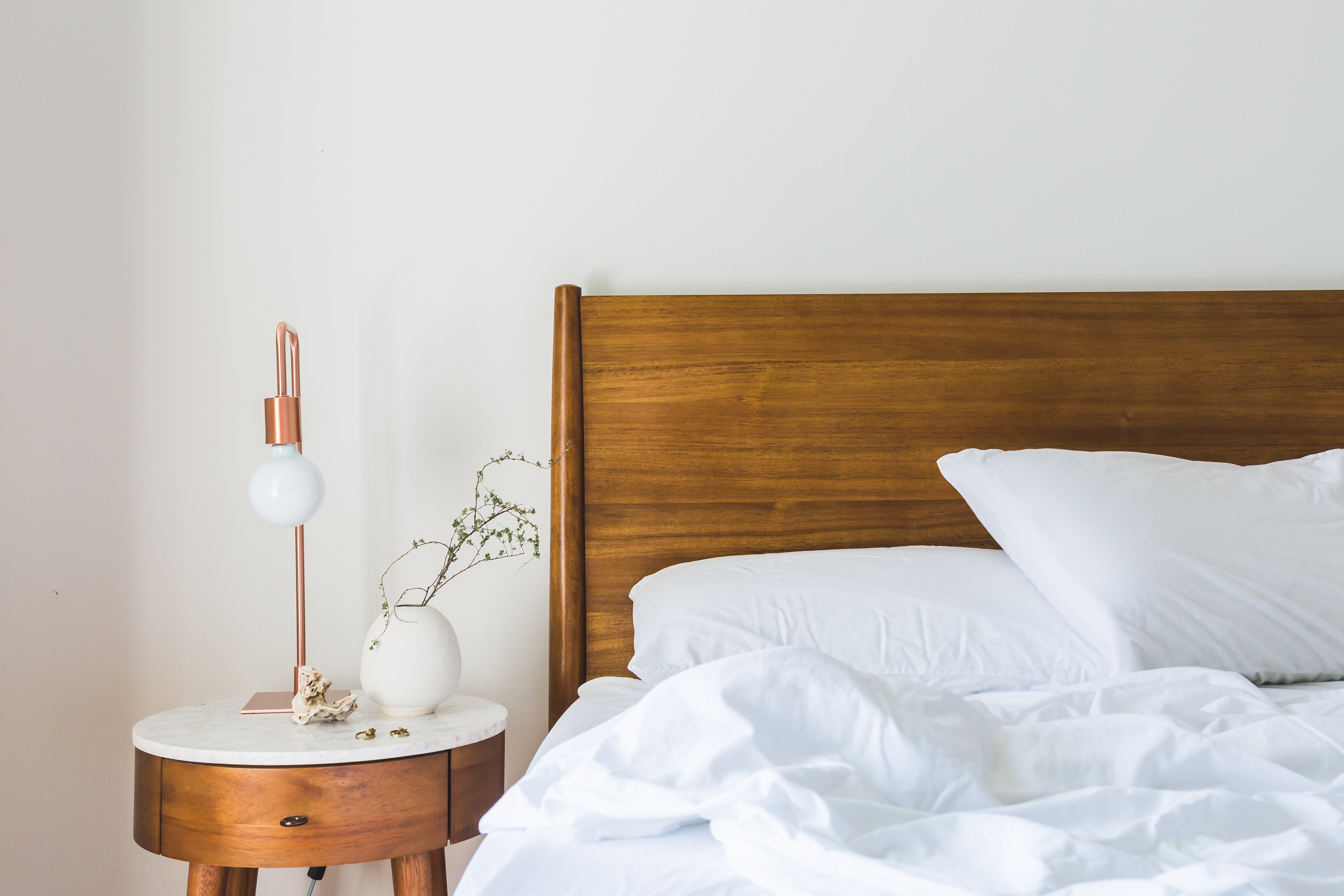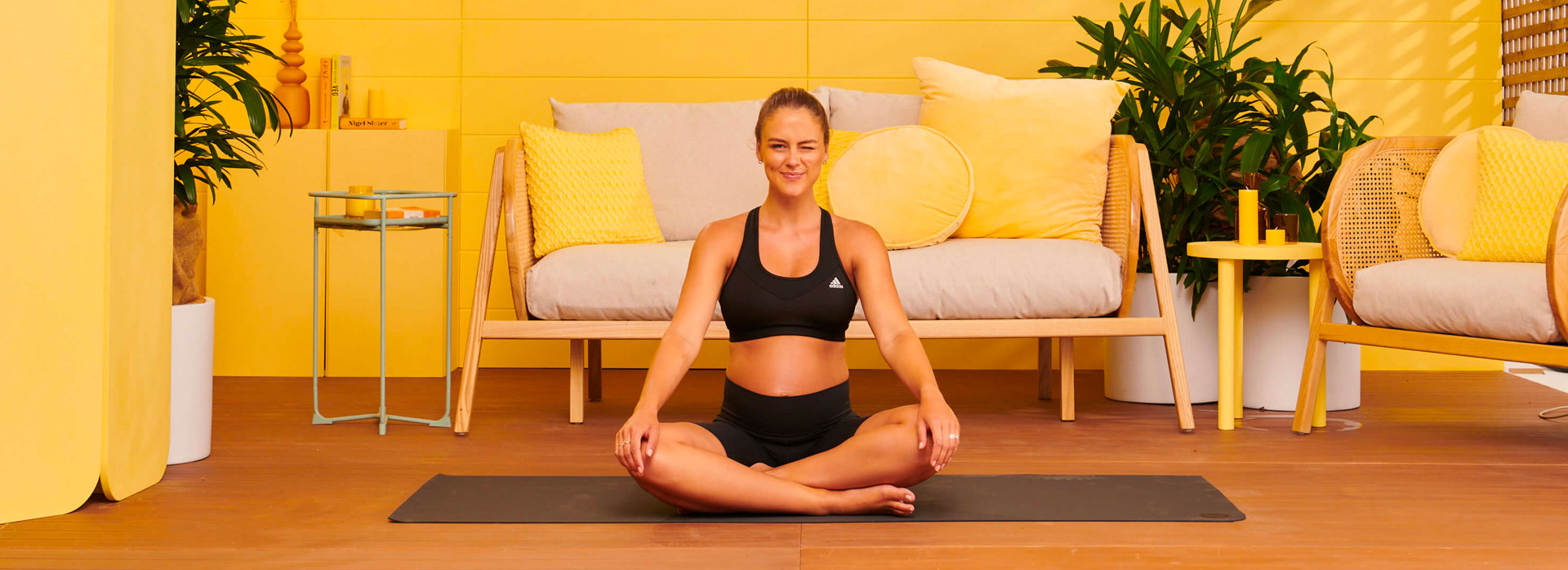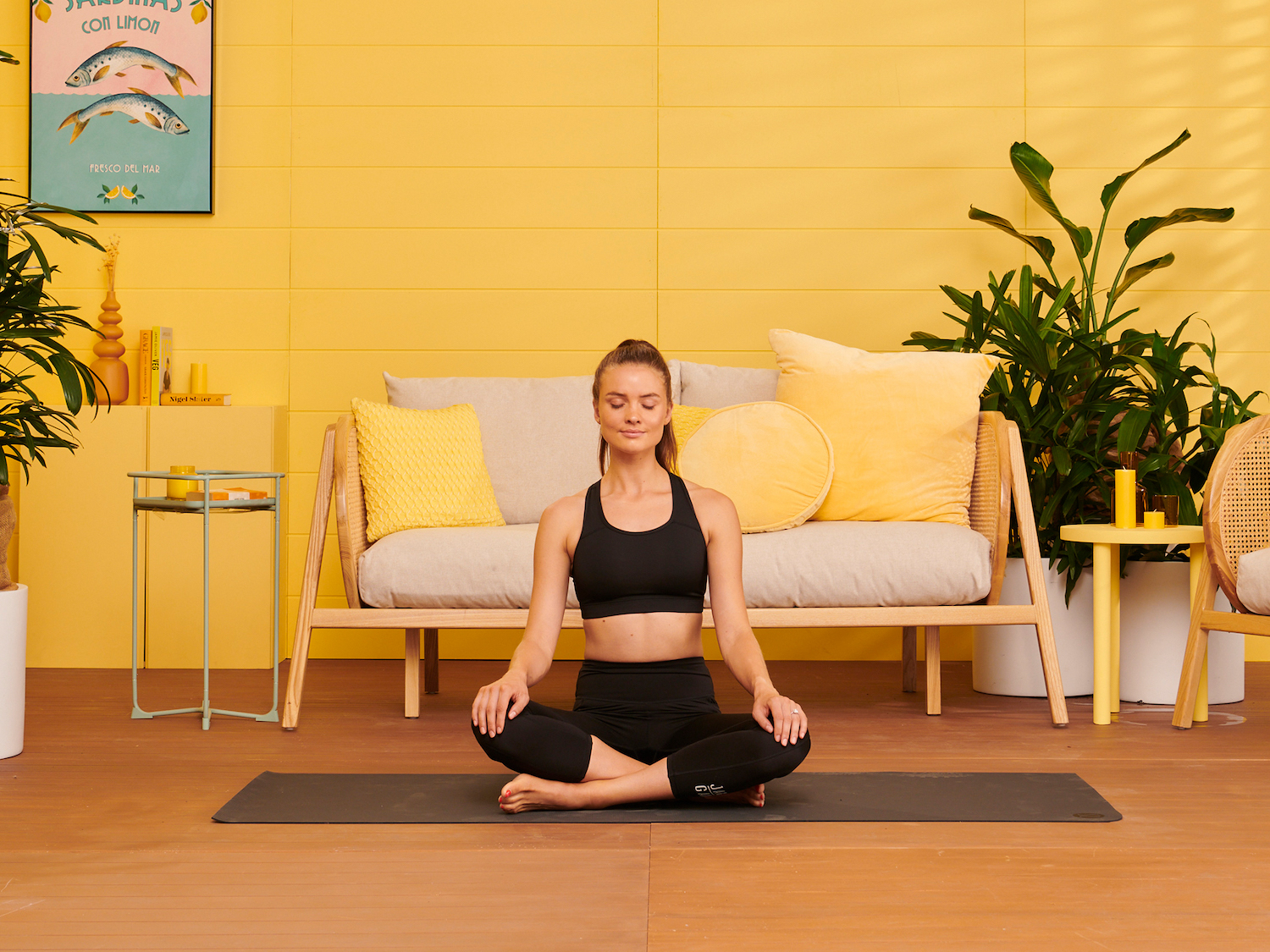The benefits of sleep meditation with Meg
Whether you struggle to fall asleep, or you wake up throughout the night, reset your sleep with our NEW 7-step ‘reset your sleep’ series.
Join our meditation coach Meg, and drift off to sleep with these dreamy meditations. Designed to help you let go of your day, quiet your mind and calm your nervous system – setting you up for a restful night’s sleep. Complete the meditations when you’re tucked up in bed. Before you to sleep, or if you wake up during the night. And work your way through the series, in any order you like!
There’s nothing worse than a bad night’s sleep. Whether you’ve spent the night tossing and turning, frustrated about not being able to fall asleep or you’ve woken up at 2am with a million things on your mind and are left watching the hours tick by, you’re sure to be familiar with the widespread effects of sleep deprivation.
According to a recent, comprehensive survey of Australian sleep habits, approximately 33% – 45% of adults don’t get enough good quality sleep. The negative effects of widespread sleep debt encompass a range of day-to-day symptoms such as fatigue, low mood, daytime drowsiness, impaired work and study performance and long-term health issues such as poor immune function, type 2 diabetes, high blood pressure and heart disease.
The good news is that introducing sleep meditations to your nightly routine can help to ease the journey into and improve the quality of your sleep, making for a healthier, happier, more well-rested you.
What is meditation for sleep?
Healthy, restorative sleep has more to do with the quality of your rest than the quantity of hours you’re asleep. When your mind is busy worrying about a problem, going over the details of your to-do list or anxiously anticipating a night of interrupted sleep with young children, which is particularly normal at bedtime without the usual distractions of the day present, it becomes difficult for the body to settle into the state of restfulness required to drift off to sleep.
Meditations for sleep are specific, guided experiences that help you to not only let go of the happenings of your day, but also invoke your body’s natural sleep aid, the relaxation response. This helps to quiet the mind, calm the nervous system and settle the body in preparation for a truly restful night.
Sleep meditations can be practiced either just before bedtime or during the middle of the night to help to create the internal conditions required for you to drift off with ease.
What are the benefits of meditation for sleep?
Studies on experienced meditators have shown that a regular meditation practice improves both slow-wave sleep and REM sleep, thus improving overall sleep quality, as well as reduces the number of nighttime wakings.
Better sleep has been linked to lower levels of stress, improved mental clarity and memory, improved immune system functioning and a decrease in illnesses associated with sleep deprivation, such as heart disease, type 2 diabetes, depression and obesity.
Regardless of whether you’re a regular meditator or not, doing a sleep meditation before sleep can help you to fall asleep faster, sleep more soundly and stay awake longer during the day.
What types of meditations work best for sleep?
When meditating to promote sleep, it’s best to practice at the end of the night when you’re already lying down and comfortably tucked into bed. The easiest way to practice sleep meditation is to listen to a guided meditation, such as the ones we have available on the Kic app, with the knowledge that you might only hear a few minutes of the meditation before you drift to sleep.
The most effective forms of meditation for sleep are:
- Body Scan Meditation: Similar to Yoga Nidra and Progressive Muscle Relaxation, Body Scan meditations guide your awareness through different parts of your body, with the intention of releasing stress, tension or pain.
- Mindfulness Meditation: These practices are centred around focusing the awareness on the present moment by connecting with your sensory experience of sounds, the breath, the body and so forth, while also welcoming all thoughts, emotions and sensations with openness, kindness and curiosity.
- Visualisation Meditation: Guided visualisations help you to relax by instructing you to imagine yourself in a calming place such as a beach or forest, drawing you into a state that is similar to hypnosis.
- Deep Breathing: Also known as Pranayama, these practices involve regulating your breath by engaging the diaphragm, which helps to engage the parasympathetic nervous system.
What about when you wake in the middle of the night?
If you wake up in the night, it’s likely that racing thoughts and an endless stream of worry will contribute to keeping you awake. This is totally normal, as things often seem worse in the middle of the night than they do in the light of day. One of the simplest and most effective ways to combat the mind’s tendency to focus on negative thoughts is to practice a Gratitude Meditation, as your mind doesn’t have the ability to feel anxious and appreciative at the same time.
Most Australians don’t get enough good quality sleep, which can lead to an array of both physical and mental health problems. Regardless of whether you’re someone who has trouble falling or staying asleep, sleep meditation is a highly effective tool for calming the mind, settling the body and providing the optimum conditions for a restorative night’s sleep.
You might also like

- Blog
- HEALTH
One question we’ve noticed that has been asked again and again is, ‘how do I get more sleep?’ So we’re inspired to dedicate this week’s blog post to this important question…

- Blog
- FITNESS
The fitness industry is full of advertising for quick fixes and shortcuts to a happier, healthier, slimmer, stronger or “better” version of you. Almost without exception these provide limited to no long-term or sustainable results and ultimately are no substitute for a balanced lifestyle, diet and regular exercise. There is, however, one very significant exception […]

- Blog
- KICBUMP
Pregnancy is an amazing journey that brings about such a rollercoaster of emotions; such as joy, excitement, worry and fear. Meditation during pregnancy can help mums-to-be shift out of the body’s “fight-or-flight” response by lowering cortisol levels and re-engaging the body’s parasympathetic nervous system. This not only helps to reduce stress but also leaves women […]



